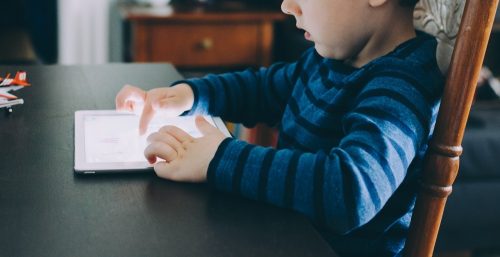
Technology is a rapidly increasing business. It is always changing and can be very difficult to adjust. It also affects our mental health, according to psychologists. Everything we see on social media can affect our lives if we let it.
New technological innovations designed to improve mental health are both exciting and frightening. — Frederick Muench Ph.D.
When we see people vacationing or having a “perfect” relationship, we tend to check on ourselves to see if we meet those standards that other people are setting on social media. We get jealous when we see things that we can’t own or do, relationships that we don’t have, any material things that we can’t afford. These things can make us question our quality of life, and we get depressed because we feel like our lives are boring.
It also affects our children. Today, even toddlers can use a phone, watch TV, or play video games for hours. This can affect their social skills and can also have serious physical problems. According to a study, a child can become overweight, develop seizures, and have poor eyesight if they spend too much time on their gadgets.

Also, the thinking and emotional development of a child are crucial in ages one to five years old. Allowing children to use gadgets for more than 2 hours a day can impact their cognitive development.
Children ages 8 to 18 are spending nearly 11 hours a day with their gadgets. It can affect their social skills. Also, children who are spending more and more time on their devices have also been diagnosed with bipolar disorder, depression, anxiety, autism, and other mental illness and the use of psychotropic drugs have tripled since then.
Limited exposure to the needs of children for healthy developments is because of excess use of gadgets. Research has shown that technology is changing the brain chemistry of a child who excessively uses devices.
I have students who, if I haven’t responded to their email within a few hours, begin calling me. Keep in mind there is no emergency; it has simply become an expectation that a response will be given nearly immediately. — William Berry, LMHC., CAP.
Keeping Children Active
If a child is showing signs of behavioral problems or requires psychotropic medication, turn off all gadgets first. The child needs to learn to be active more. It can be hard at first, especially when there is excess use of devices, and the child can have a hard time adjusting.
But do not worry, there are many ways to prevent a child from using too many gadgets in a day. It is advised that parents should discipline their children by limiting their time in using devices and to let their children understand why this has to be done.
One way of doing this is to encourage the child to engage in outdoor activities that you think they will have an interest in. Encourage them to spend one hour interacting with others face to face, doing some fun activities that can keep them occupied and to have them play with other children. Encouraging them to connect with nature for every hour of technology use can be another option. This guideline can also help adults who have a hard time letting go of their phones or other gadgets.

Adults also have trouble with excess use of technology. Today, a lot can be done just by using the phone. And it is time-consuming when we engage in social media. Answering emails and going through Facebook, Twitter, Instagram, and other forms of social media can have a significant impact on an adult. Research shows that even adults have a hard time understanding facial expressions because they spend most of their time on the internet and social media than engaging face to face with real-life people.
Poor management of the technology can lead to problems at home, school, and work, as well as in relationships, especially among young people. Growing numbers of parents are becoming increasingly concerned that they are losing their children to screens. — Michael Fraser, PhD
This can even affect family life. People have a hard time turning off their phones or gadgets and stop working; neglecting some quality time with their families and in the end, losing time and not being present in critical situations. Failure to set boundaries is harmful to both physical and mental health of not only a child but an adult as well.
You have to learn to prioritize. Know what is more important in some situations. Making yourself unavailable to technology and available to your friends and family can be a great way to show them that they are your priority. Setting a schedule to check on your emails while you are at home can be a great way to keep yourself away from your computer or phone. Instead of watching videos with your kids, go outside and explore nature, play with them, and join them in their activities. Both you and your child can now focus on each other rather than being fixated on the screen of your phone or television. This will then become a great memory your kids will remember forever while your physical and mental health are both healthy.
Set a good example to your children so that they won’t have to be fixated on their screens. Spend more time engaging with others and have the time to go and bond with you.